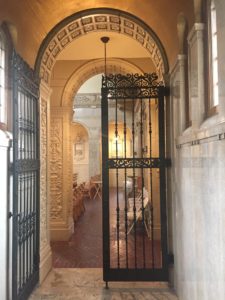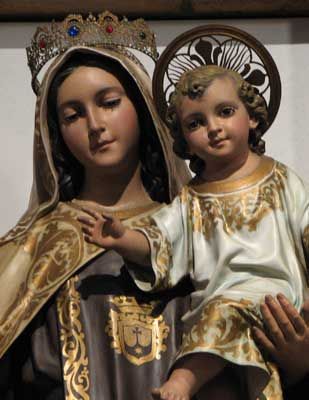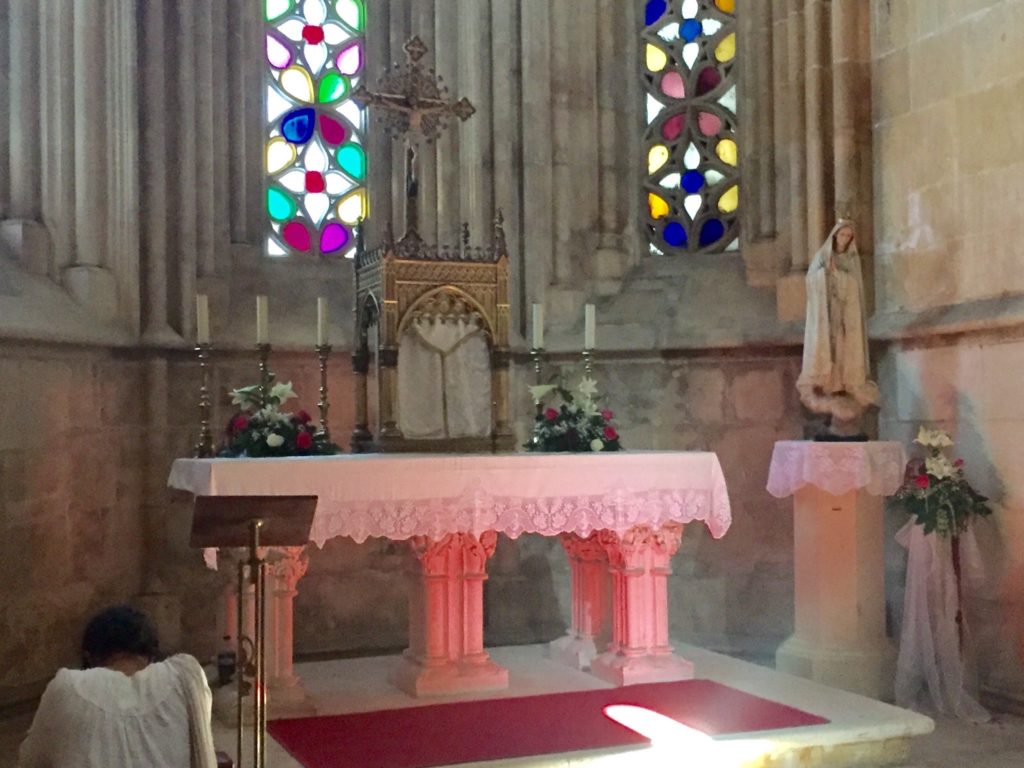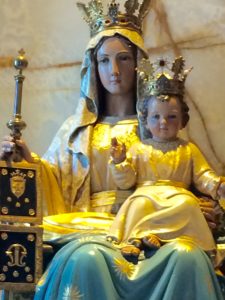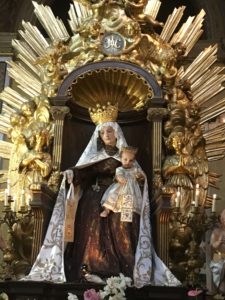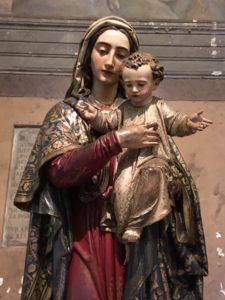PART I
PART II
(Click on the triangle to play the audio. Below is a rough transcription of the conference)
In John 6, Jesus refers to himself as ‘I am’ – Jahweh. As Catholics, we sometimes are repulsed by the name Jehovah because we associate this with ‘Jehovah Witnesses’ and their often anti-Catholic teaching.
When God revealed His name ‘I am who am,’ this revealed who God is. It is a metaphysical expression that God is of another dimension – He is far and above creation in essence. Everything of His creation is a reflection of His beauty, His truth, and His goodness. Everything witnesses to the grandeur of God. However, none of this can fully capture who He is in His essence; this is beyond human comprehension. He is transcendent as well as eminent.
In the Western church, we lose sight of His transcendence, and we need to recapture what was at the heart of Christian mysticism. He is the only one for whom there is no origin.
God’s essence is to exist; He is the cause of our becoming. He is ultimately, supreme perfection, the absolute Absolute, that of which nothing greater can be conceived, ultimate Reality – Being itself. All these philosophical terms point to His supernatural being. He cannot be comprehended by our human understanding, though all of creation points to Him.
No image can capture God, but in the incarnation, we ultimately see God, for the God-Man, Jesus Christ, reveals the face of God. Because of the incarnation, we have a person who is tangible to help us relate to God. He gives us access to the magnificent mystery of God. He enters into full relationship with us through His Son. Jesus is God made man who made God visible.
Through the Eucharist, especially, Jesus becomes tangible in our hands; the Eucharist is at the heart of the life of the Trinity. It enters into the mystical relationship and is given to us as a foretaste of the eternal banquet. Love’s true nature is to come down. God in his humility came down to our level to raise us up to Him.
Jesus wants to feed us from heaven. In Toledo, St. John of the Cross writes a series of poems titled Romances, about God’s love for us – the divine romance. Through the Eucharist, we are being drawn into this love.
In our Catholic tradition, every saint has discovered and seen the reality of what the Eucharist is, and have freely made that as the center of their lives – the Holy communion that leads to the Holy Trinity.
Saint Teresa describes her experience of the Holy Eucharist – “in a moment, all the darkness of the soul disperses.” All afflictions of soul and body can leave in a moment through the Eucharist – exhaustion, negative sarcasm, critical spirits – can wear out our spiritual journeys but in one moment, God can alleviate us from all that weight.
In the Eucharist, Saint Teresa sees the “extraordinary majesty of God” so that “the whole experience seemed to annihilate” her. When we contemplate this truth through the eyes of faith, we’re able to acknowledge in our hearts the reality of God’s presence, though by its physical nature, we only see something very insignificant.
This mystery points to who we are as the Body of Christ. To the eyes of the world, we are ordinary human beings, with faults and defects, just like anybody else. Yet through grace, the God of heaven and earth lives in our hearts and calls us His Body and calls us to be Light for the World.
What does it mean to be Light for the World? This is not meant to be egocentric or narcissistic. It means that we must be united to the sufferings of Christ; we must experience the contradictions of the cross and experience that suffering in union with the cross. It means being His ambassador for the sake of the family. God can use us as instruments of salvation for those whom we most love. We must love Christ on the cross. This love is not about loving suffering itself – loving the bare cross without Jesus– but loving Christ on the cross.
It is true that Jesus is disguised in all creation. God is everywhere, but not everything is God.
St. Teresa recognizes the immensity of the Deity “concealed in something as small as a host…wisdom so wonderful…the stone that was rejected has become the cornerstone.” The universe revolves around the cross and resurrection, and the Eucharist enters into the victory of God’s eternal now, of love that overcomes every evil.
Where there has been destruction, the cross is somehow at work. Saint Paul says that all creation groans for the coming of the freedom that comes in Christ; all creation shares in the redemptive act. The great saints, starting with the Greek Fathers and greatest saints of the Early Christian Church and the East, understood and wrote often about this mystery.
Saint Teresa contrasts the experience of prayer possible through Communion as opposed to prayer outside of the Eucharist, mental prayer or meditation. As Christians, meditation for us means the gaze of faith on some truth that is revealed to us that expresses something about who God is and who we are.
Our spiritual life must be well-formed through proper meditation and an understanding of who God is – and then – we can go into emptiness, into the cloud of unknowing and enter into the embrace of God. In the early states of meditation, we must have proper formation. We are to use our sense to reflect on the truth of the faith that can help us deepen our relationship with God in a way that changes and transforms us.
Holy Communion is entering into God’s eternal Now. I am, Now, in the present moment. God exists to abide in the eternal now, in the sacrament of the moment, and we are called to enter into that. The present moment, where God is to be encountered, is liberating and takes us into the fullness of who God is – embracing all things, all of creation in one act of love. Whenever we celebrate communion, we enter into that experience.
God wants to make Himself enfleshed in you, now, and this happens through the Eucharist. It is an amazing marriage between heaven and earth.
Saint Teresa says, “There’s no reason to go looking for Him further away.” He is present in the humble wafer as He is in the great cathedrals. We must find that treasure in ourselves especially – and in unexpected places and people. Jesus comes not simply for us to adore Him in the tabernacle, but He comes down so that we may be His tabernacle.
What is keeping you from keeping the treasure of heaven within yourself? How is God asking you to find the priceless pearl within you?
When we start to love ourselves the way God loves us, then we can love others more freely, and see God everywhere. The key to this liberty of grace is our true awareness of God’s deep love.
SOURCE: 2018 OCDS Meeting Conference, Santa Clara, CA

